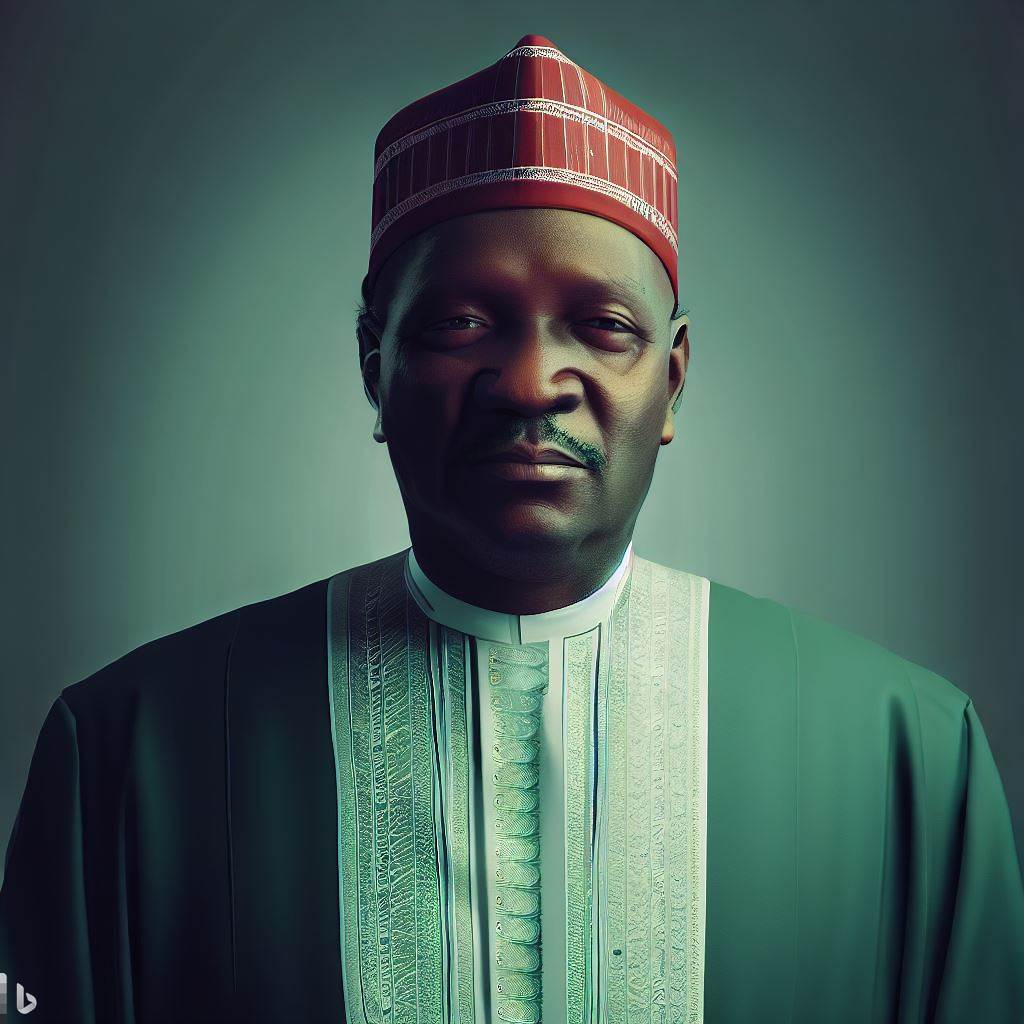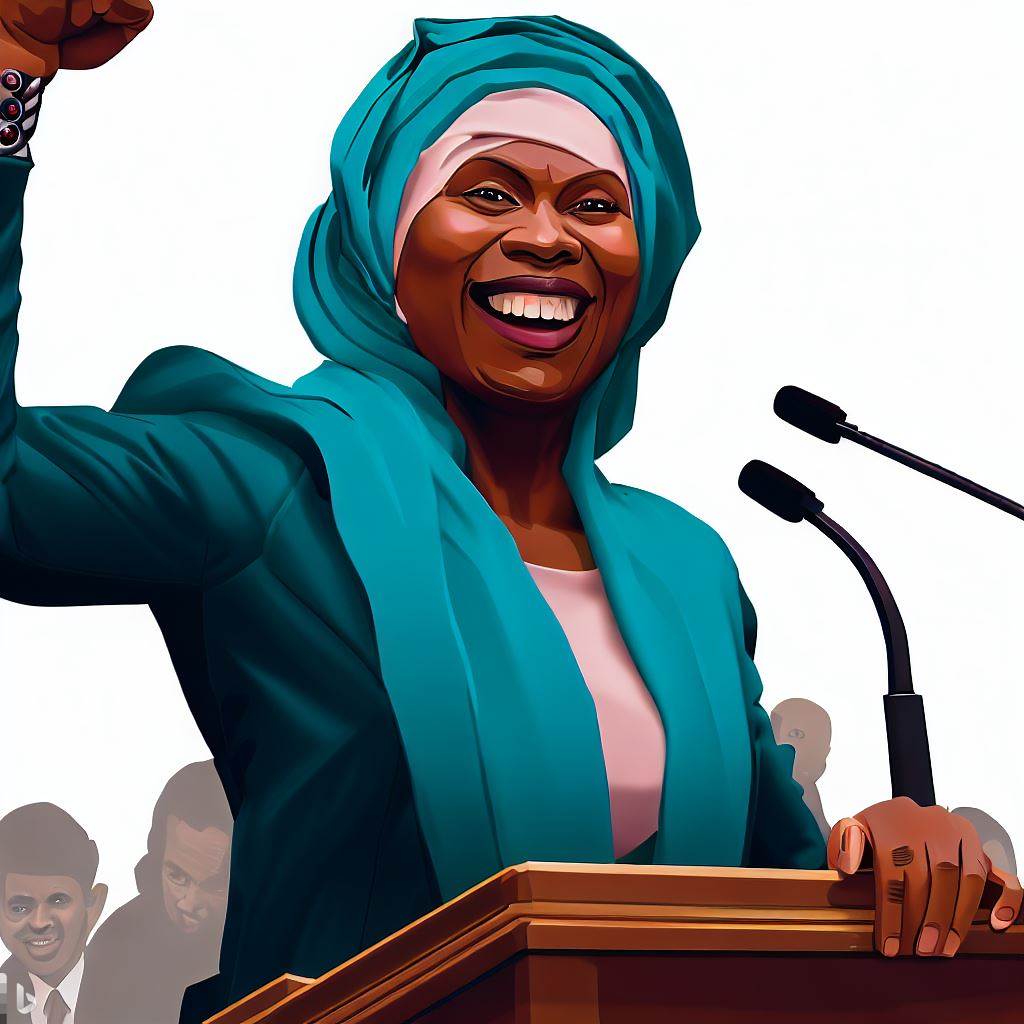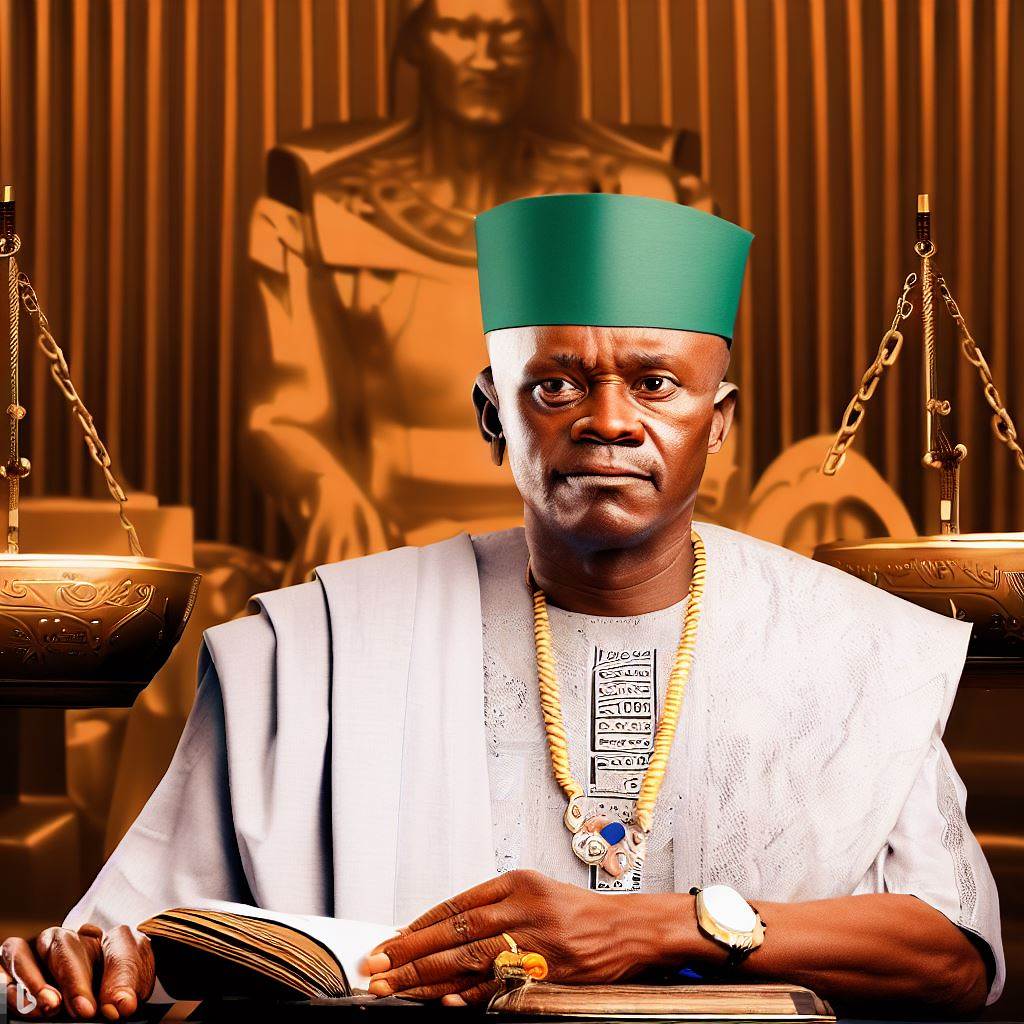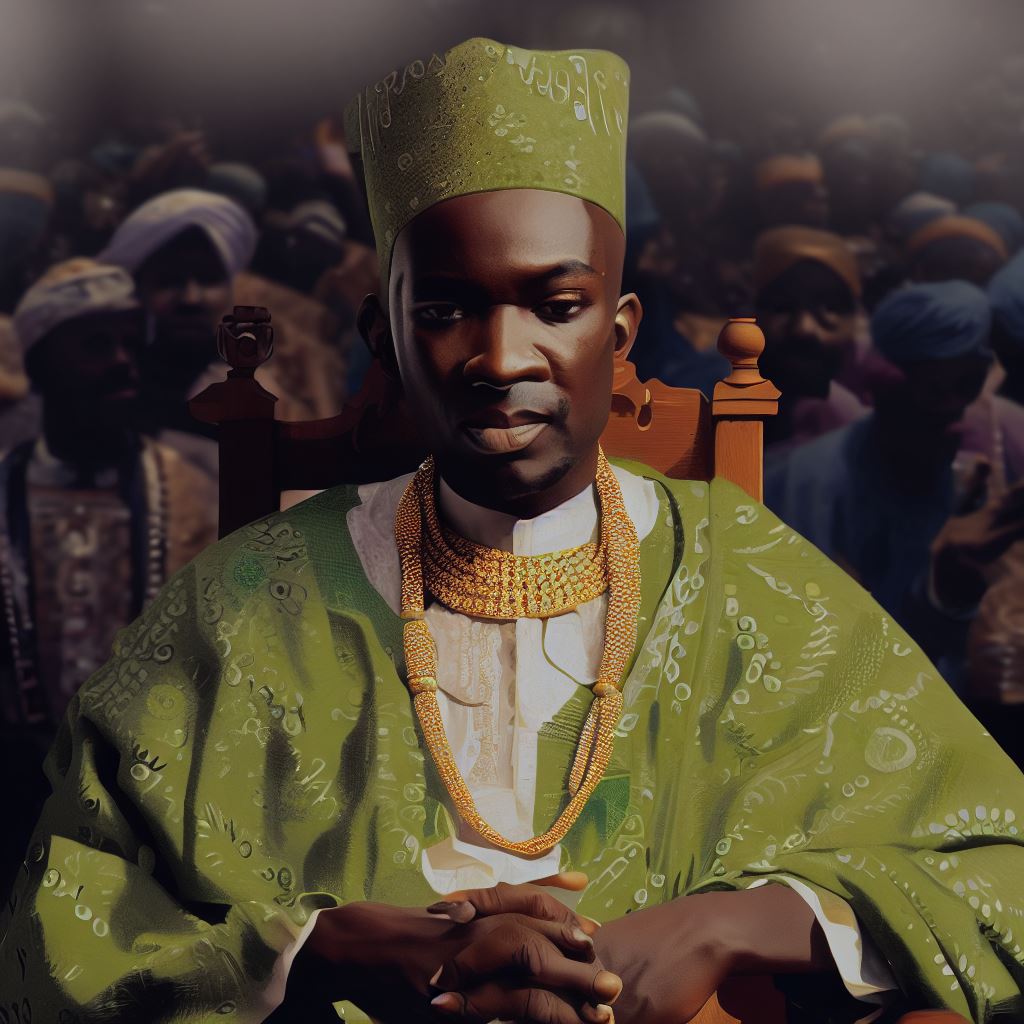Introduction
Political parties play a crucial role in shaping the Nigerian political landscape. They serve as vehicles for political participation, representation, and mobilization of citizens.
This blog post aims to provide a comprehensive overview of Nigerian political parties.
The purpose of this blog post is to explore the importance, structure, ideologies, and key features of political parties in Nigeria.
By examining the historical background and current state of political parties, readers can gain a deeper understanding of the Nigerian political system and its dynamics.
Throughout this chapter, we will delve into the formation of political parties in Nigeria, their functions, and their impact on governance and democracy.
We will also discuss the challenges faced by these parties, such as factionalism, lack of internal democracy, and low voter participation.
Furthermore, this blog post will highlight the major political parties in Nigeria, including the All Progressives Congress (APC) and the People’s Democratic Party (PDP).
By examining their ideologies, policies, and electoral successes, readers can gain insights into the evolving party dynamics in the country.
Overall, this blog post will serve as a comprehensive guide for readers seeking an in-depth understanding of Nigerian political parties, shedding light on their significance in the country’s democratic processes and their role in shaping Nigeria’s political future.
Historical Background
Nigeria’s political parties have a rich historical background that dates back to the pre-independence era.
During this time, the country was under British colonial rule and the struggle for independence was gaining momentum.
Several political parties emerged during this period, all with the common goal of liberating Nigeria from colonial rule.
The most prominent among these parties were the National Council of Nigeria and the Cameroons (NCNC), led by Nnamdi Azikiwe, and the Action Group (AG), led by Obafemi Awolowo.
Overview of the Pre-Independence Era
The pre-independence era was marked by intense political activities and a growing awareness among Nigerians about the need for self-governance.
The NCNC and the AG played significant roles in mobilizing the masses and advocating for independence.
These parties organized protests, boycotts, and strikes, which put pressure on the British colonial government to grant Nigeria independence.
The struggle for independence culminated in 1960 when Nigeria finally gained its freedom.
The First and Second Republics
Following independence, Nigeria transitioned into the First Republic, which lasted from 1960 to 1966. During this period, political parties took center stage in the country’s governance.
The dominant parties were the Northern People’s Congress (NPC) and the National Council of Nigerian Citizens (NCNC).
However, the First Republic was marred by political instability, ethnic tensions, and corruption, which eventually led to a military coup in 1966 and the end of the First Republic.
The Second Republic, which was established in 1979, aimed to restore civilian rule and democracy.
Political parties such as the Unity Party of Nigeria (UPN), the Nigerian People’s Party (NPP), and the National Party of Nigeria (NPN) emerged during this period.
Impact of Political Parties during these Periods
Political parties played a crucial role in shaping the political landscape of Nigeria during the First and Second Republics. They served as platforms for political mobilization, policy formulation, and electioneering.
These parties attracted various ethnic, regional, and religious interests, which sometimes resulted in conflicts and power struggles.
Despite these challenges, political parties contributed to the growth and development of democracy in Nigeria.
Major Political Events that Influenced the Formation and Structure of Nigerian Political Parties
Several major political events significantly influenced the formation and structure of Nigerian political parties throughout history.
One of such events was the 1966 military coup, which led to the suspension of party politics and the emergence of military rule. This marked a turning point in Nigeria’s political landscape.
Another significant event was the annulment of the 1993 presidential election, which sparked widespread protests and led to the eventual return of democratic governance in 1999.
Furthermore, the ethnic and religious diversity of Nigeria also played a major role in shaping the formation and structure of political parties.
Parties often align along ethnic and regional lines, which reflects the complexities of Nigerian society.
In the end, Nigerian political parties have a rich and complex history that has shaped the country’s political landscape.
From the pre-independence era to the present, political parties have played significant roles in Nigeria’s struggle for independence, governance, and democracy.
Despite challenges and setbacks, these parties continue to evolve and adapt to the ever-changing dynamics of Nigerian politics.
Read: Challenges and Triumphs: A Nigerian Politician’s Journey
Major Political Parties
The two dominant parties: All Progressives Congress (APC) and People’s Democratic Party (PDP)
When it comes to Nigerian political parties, the two dominant parties are the All Progressives Congress (APC) and the People’s Democratic Party (PDP).
The APC is a center-right party that was formed in 2013 and came into power in 2015. It is seen as a merger of several opposition parties and has a strong focus on progressive economic policies.
The PDP, on the other hand, is a center-left party that was founded in 1998 and ruled Nigeria from 1999 to 2015. It is known for its liberal approach to governance and its emphasis on social welfare programs.
Ideologies, strengths, and weaknesses of each party
Both parties have their strengths and weaknesses.
The APC is known for its commitment to fighting corruption and implementing economic reforms, but it has been criticized for not delivering on some of its promises.
The PDP, on the other hand, is seen as more inclusive and focused on social issues, but it has been accused of widespread corruption during its time in power.
Other prominent parties such as All Progressives Grand Alliance (APGA), Social Democratic Party (SDP), etc.
Aside from the APC and PDP, there are also other prominent political parties in Nigeria.
One of them is the All Progressives Grand Alliance (APGA), which is primarily focused on the Igbo ethnic group and is known for its advocacy of Igbo interests.
Another notable party is the Social Democratic Party (SDP), which has a strong emphasis on social justice and democratic ideals.
It was originally founded in the late 1980s and has undergone several transformations over the years.
In addition to these parties, there are also several smaller parties that have gained some traction in Nigerian politics.
These include the Labour Party, the Action Alliance, and the United Progressive Party, among others.
Overall, the Nigerian political landscape is diverse and vibrant, with different parties representing various interests and ideologies.
While the APC and PDP remain the dominant forces, other parties are seeking to make their mark and provide alternative options for the Nigerian electorate.
As Nigeria continues to navigate its political future, it is crucial for citizens to understand the various political parties, their ideologies, strengths, and weaknesses.
This knowledge enables informed decision-making and helps shape the future of democracy in Nigeria.
Read: The Path to Politics: Becoming a Politician in Nigeria
Political Party Formation and Registration
Forming a political party in Nigeria involves a detailed process that ensures transparency and accountability.
The Independent National Electoral Commission (INEC) plays a crucial role in overseeing party registration and regulation.
Process of Forming a Political Party in Nigeria
- Conduct an extensive research on the political landscape and identify a gap or ideology.
- Articulate the party’s vision, mission, and objectives in a well-defined party manifesto.
- Recruit members who resonate with the party’s ideology and can contribute meaningfully towards its goals.
- Hold meetings and consultations with potential party leaders and members to gain support.
- Develop a constitution and party constitution that outlines the party’s internal structure and decision-making process.
- Choose a unique party name that reflects the party’s values and aspirations.
- Prepare necessary documentation such as forms and affidavits required for registration.
- Submit the completed forms, along with the required fees, to the INEC.
- Undergo a thorough screening process by the INEC, which includes verification of membership and eligibility.
- Comply with all the guidelines and regulations set by the INEC to attain full registration.
Requirements for Party Registration
For a political party to get registered in Nigeria, it must meet the following requirements:
- Submit the names, addresses, and signatures of at least 1,000 bona fide members from each of the states.
- Have a functional national headquarters and offices in at least 24 states of the country.
- Demonstrate a commitment to the principles of democracy, equality, and social justice.
- Publish the party’s constitution, manifesto, and organizational structure in at least two national newspapers.
- Provide evidence of payment of the prescribed registration fees.
- Comply with all the requirements and guidelines outlined by the INEC for political party registration.
Role of the Independent National Electoral Commission (INEC)
The INEC is responsible for overseeing the registration and regulation of political parties in Nigeria. Its role includes:
- Providing guidelines and regulations for party formation and registration.
- Serving as the custodian of party records and publications.
- Conducting thorough verification processes to validate party membership and qualifications.
- Ensuring compliance with electoral laws and regulations.
- Resolving disputes among political parties and members through an impartial and transparent process.
- Regularly updating the party registration database and publishing a list of registered political parties.
- Promoting transparency and accountability within the political party system.
- Organizing workshops, training, and capacity-building programs for political parties.
- Ensuring adherence to campaign finance regulations and monitoring party activities during elections.
In essence, the process of forming and registering a political party in Nigeria requires careful planning, adherence to guidelines, and collaboration with the Independent National Electoral Commission.
By fulfilling the requirements and demonstrating commitment to democratic principles, parties can contribute to the vibrant and inclusive political landscape of Nigeria.
Read: Nigeria’s Military Strategy in a Changing World: An Analysis

Party Membership and Support
Political parties in Nigeria play a crucial role in the country’s democratic system. They serve as platforms for citizens to engage in political processes, express their preferences, and shape the country’s governance.
In this section, we will explore how individuals become members of political parties, discuss the benefits and responsibilities of party membership, and analyze the level of support each party receives at the grassroots and national levels.
Becoming a Party Member
- Joining a political party in Nigeria begins with registration, which can be done online or at party offices.
- Membership forms are provided, requiring basic personal information such as name, address, and contact details.
- Applicants may be required to pay a registration fee or provide proof of membership payment.
- Some parties have membership requirements, such as being of a certain age or having a clean criminal record.
- Registered members receive a membership card, granting them official recognition and benefits within the party.
Benefits and Responsibilities of Party Membership
- Party members have the opportunity to participate in party activities, including meetings, conventions, and rallies.
- They can also contest for party positions, nominate candidates, and contribute to policy formulation.
- Membership offers networking opportunities, allowing individuals to build relationships within the political sphere.
- Parties often provide education and training programs to enhance members’ political knowledge and skills.
- Members have access to party resources and assistance, such as campaign materials and funding.
- There is a responsibility to support the party’s goals, values, and vision through active engagement and solidarity.
- Members are expected to mobilize support for the party during elections and grassroots campaigns.
- Political parties may enforce disciplinary measures for members who violate party rules or engage in misconduct.
Level of Party Support
Political parties in Nigeria, like in many other countries, vary in terms of popularity and support. Here, we will examine the level of party support at both the grassroots and national levels.
Grassroots Level
- Party support at the grassroots strongly influences the outcomes of local and state-level elections.
- The parties’ ability to mobilize and engage with local communities plays a significant role in winning elections.
- Factors such as party structures, presence, and level of community development initiatives impact grassroots support.
- Strong grassroots support can lead to increased party visibility, influence, and candidate popularity.
National Level
- At the national level, party support determines the success or failure of presidential and legislative elections.
- Opinion polls, surveys, and voter sentiment help gauge the popularity and level of national party support.
- National media coverage and public perception also contribute to party support dynamics.
- Party ideologies, policies, track record, and ability to address pressing national issues influence support.
- Cross-regional appeal, religious or ethnic affiliations, and candidate credibility also impact national support.
In review, becoming a member of a Nigerian political party involves registration and meeting certain requirements.
Party membership offers numerous benefits and responsibilities, requiring active involvement and alignment with the party’s agenda.
The level of party support varies, ranging from grassroots influence to national significance, and is influenced by factors such as community engagement, policies, and candidate credibility.
Read: Becoming a Military Officer in Nigeria: A Step-by-Step Guide
Challenges and Controversies
Internal party conflicts and power struggles have long plagued Nigerian political parties, hindering their ability to effectively govern and serve the people.
Addressing Internal Party Conflicts and Power Struggles
In many instances, Nigerian political parties have become breeding grounds for internal strife and power struggles among party members.
- One major issue is the lack of internal democracy within parties, as leaders often manipulate party processes to ensure their continued dominance.
- This has led to factions forming within parties, with members vying for control and influence, sometimes resorting to violence and intimidation tactics.
- Furthermore, party members who dare to challenge the status quo often face marginalization and exclusion, effectively stifling their voices and ideas.
- These internal conflicts and power struggles weaken the parties’ ability to present a united front and undermine their credibility among the electorate.
Corruption and Financial Impropriety Allegations
Another significant challenge faced by Nigerian political parties is rampant corruption and financial impropriety within their ranks.
- Corruption allegations have plagued political parties, with reports of misappropriation of funds meant for party development and activities.
- Party officials, tempted by the allure of wealth and power, have been accused of embezzlement, bribery, and kickbacks.
- This financial mismanagement not only cripples party resources but also erodes public trust in the integrity of the political process.
- While some party leaders have been prosecuted for corruption, these cases remain the exception rather than the norm.
Controversies Surrounding Party Primaries and Candidate Selection
The selection of candidates through party primaries has also been a source of controversy and discontent within Nigerian political parties.
- Party primaries, which are intended to be democratic processes, have often been marred by irregularities, biases, and favoritism.
- There have been instances where party leaders have imposed their preferred candidates, sidelining more qualified and popular contestants.
- This manipulation of the candidate selection process undermines the principles of fair representation and undermines the democratic principles of Nigerian politics.
- Ultimately, controversies surrounding party primaries not only breed resentment within parties but also affect the overall integrity of the electoral system.
Basically, Nigerian political parties face numerous challenges and controversies that hinder their ability to fulfill their roles effectively.
Internal conflicts and power struggles, corruption allegations, and controversies surrounding candidate selection weaken parties and erode public trust in the political process.
To build a stronger democracy, these issues need to be addressed through internal reforms, transparency, and accountability.
Influence on Nigerian Politics
In Nigerian politics, political parties play a crucial role in shaping policy-making and governance.
Party affiliations significantly affect elections, as parties mobilize their supporters and offer different policy platforms.
The impact of party politics on Nigeria’s democratic process is far-reaching, affecting the country’s political landscape.
The impact of party politics on Nigeria’s democratic process
- Political parties provide a platform for politicians to articulate their policies and engage in public discourse.
- They shape the agenda of policy-making by proposing legislation and influencing the decision-making process.
- Party affiliations influence the behavior of elected officials, who are expected to follow the party’s ideology and agenda.
- Through their respective parties, politicians seek support from the electorate during election campaigns.
- Political parties mobilize voters, ensuring turnout and participation in the electoral process.
- Party primaries, where candidates are selected, are key to the electoral process and party dynamics.
- Party politics also have a profound impact on Nigeria’s governance, as elected officials implement party policies and manifestos.
- Parties provide a mechanism for citizens to hold politicians accountable for their actions and fulfill their campaign promises.
- Political parties contribute to the development of Nigeria’s democratic culture and institutions.
- They foster pluralism and provide an avenue for different interest groups to participate in political discourse.
- However, party politics in Nigeria also face challenges, such as a lack of internal democracy within parties.
- Intra-party conflicts often undermine party cohesion and weaken the overall democratic process.
- Party financing remains a critical issue, with allegations of corruption and undue influence on party decisions.
- Several political parties in Nigeria have emerged with different regional and ethnic interests.
- These parties represent diverse societal groups and often compete for power along ethnic or regional lines.
- The dominance of certain parties in particular regions or states exacerbates political divisions and tensions.
- Political party coalitions and alliances play a significant role in shaping Nigeria’s political landscape.
- These coalitions bring together parties with shared interests, often to maximize their chances of winning elections.
- Party mergers and realignments occur before elections, creating new dynamics within the political landscape.
Overall, Nigeria’s political parties wield considerable influence on policy-making, elections, and the democratic process.
Efforts to strengthen internal democracy, enhance party financing transparency, and promote inclusivity are essential for Nigeria’s political development.
Conclusion
This blog post provided a comprehensive overview of Nigerian political parties. It discussed the history of political parties in Nigeria, their ideologies, and their impact on the country’s democratic process.
Understanding Nigerian political parties is essential for citizens to make informed decisions during elections.
It is important to actively engage in political discourse, stay informed about party policies, and actively participate in the democratic process by exercising our right to vote.
By doing so, we can help shape the future of our country and contribute to its development and progress.
So let’s be active and responsible citizens who actively participate in political discussions and exercise our democratic rights. Together, we can make a difference in the Nigerian political landscape.




